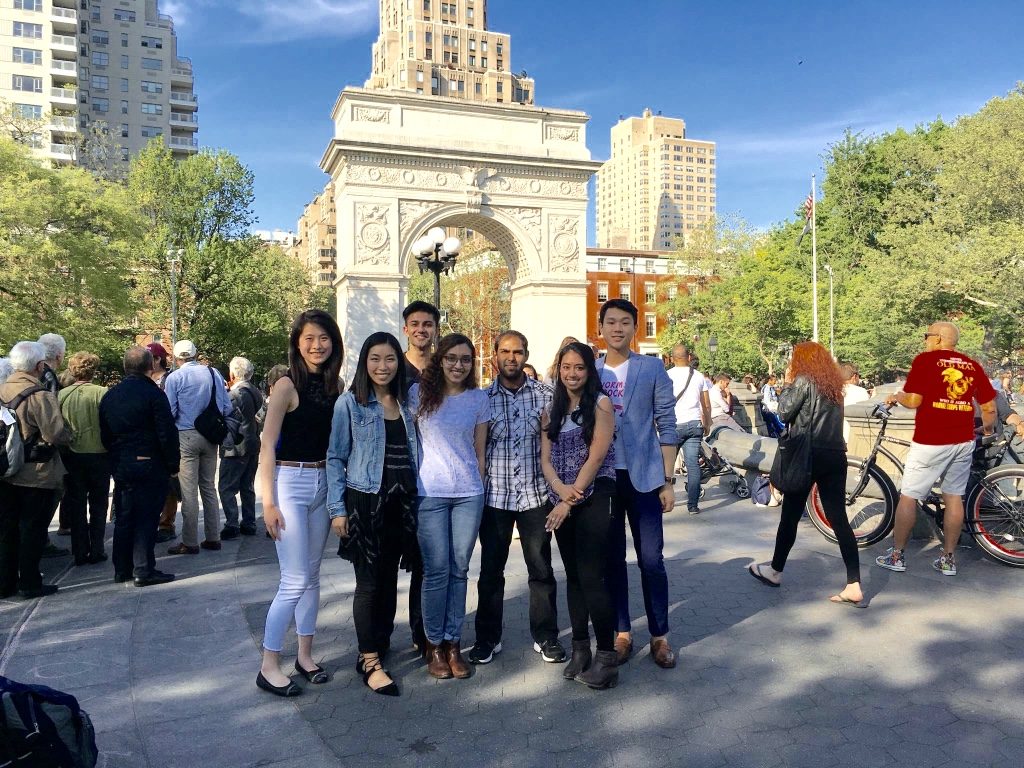
Gloria Coruzzi Teaching
Becoming a Scientist (BIOL-UA 995)
Offered each Fall
Course Overview: Pursuing a scientific career is intellectually exciting and practically important to society. Succeeding in a scientific career is both an art and a science. Being successful requires intelligence and expertise in the laboratory, but equally important, it requires skills in scientific writing, oral communication, and ethics. In this course, “Becoming a Scientist”, undergraduate Biology majors who are conducting independent laboratory-based research projects will perform project-based learning through reading scientific papers, and through writing and oral communication of scientific results, while also gaining exposure to issues in scientific ethics and career paths. Each student will develop these skills using their honors thesis research project as a springboard.
Syllabus>>
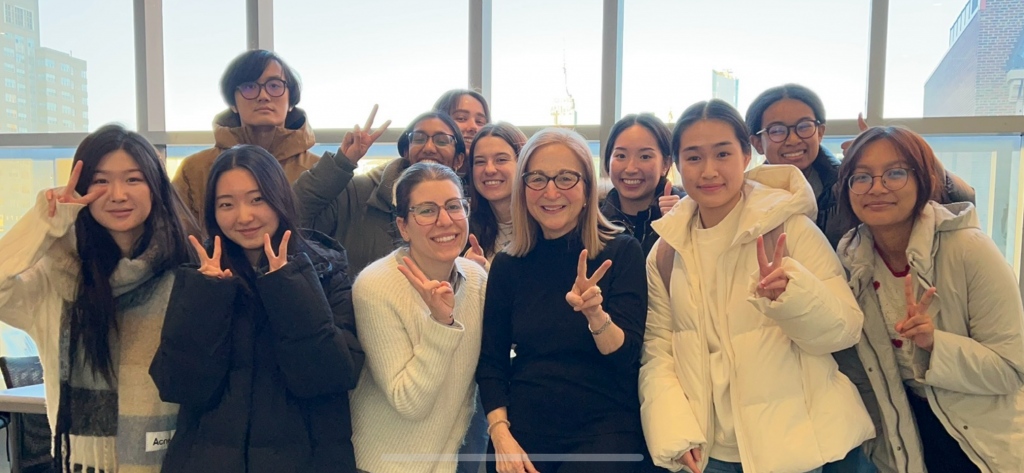
Senior Honor’s Thesis Course
BIOL-UA 999
Offered each Spring
Course Objectives: Each student will write and defend an honor’s thesis based on independent research and the skills developed in BIOL-UA995 “Becoming a Scientist.”
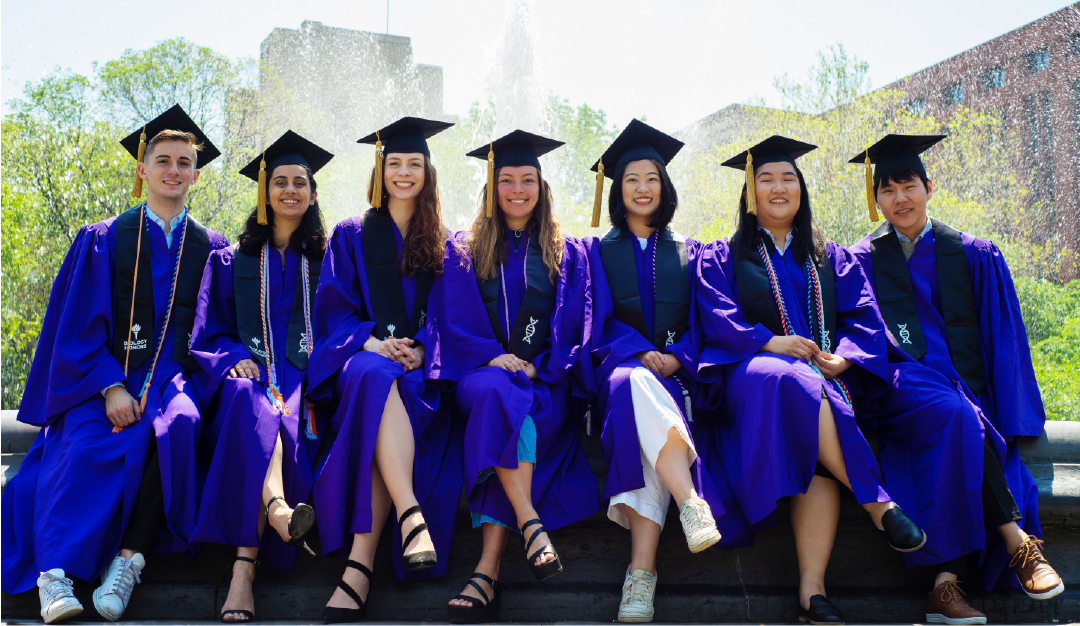
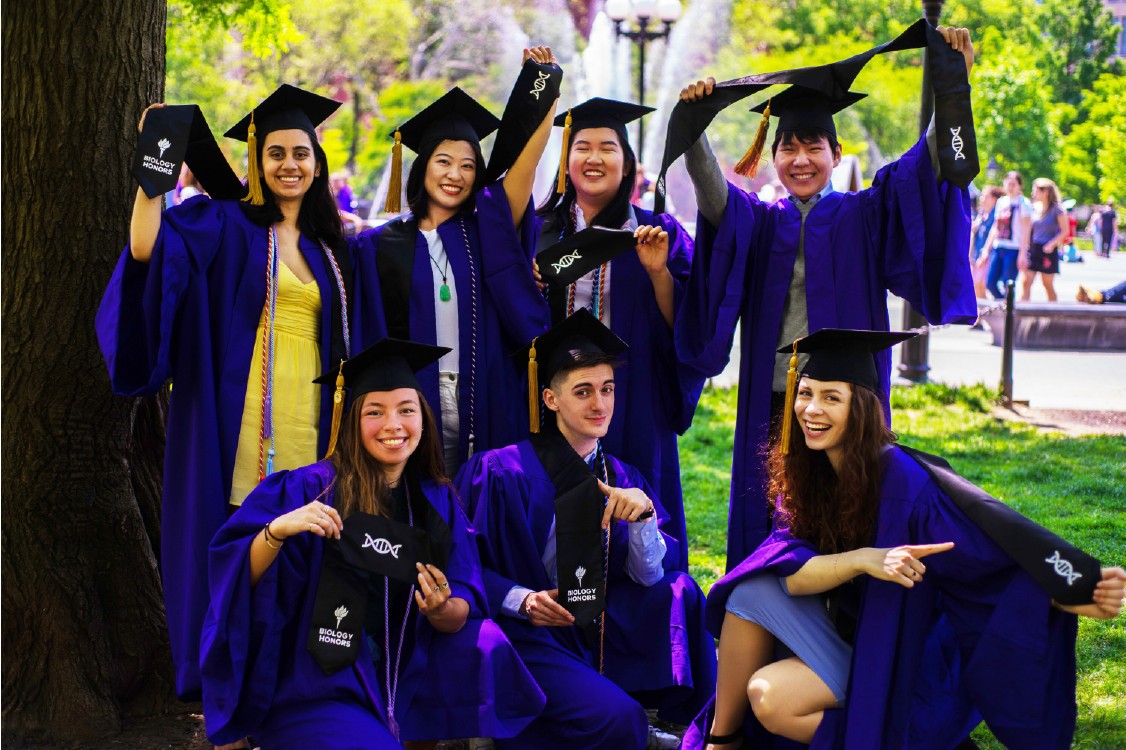
Class of 2019: Matt Generoso, Apeksha Ashok Kumar, Libuse Janska, Rimma Levina, Taylor Chen, Kim Nguyen, Soon-Hoo Lee
Syllabus >>
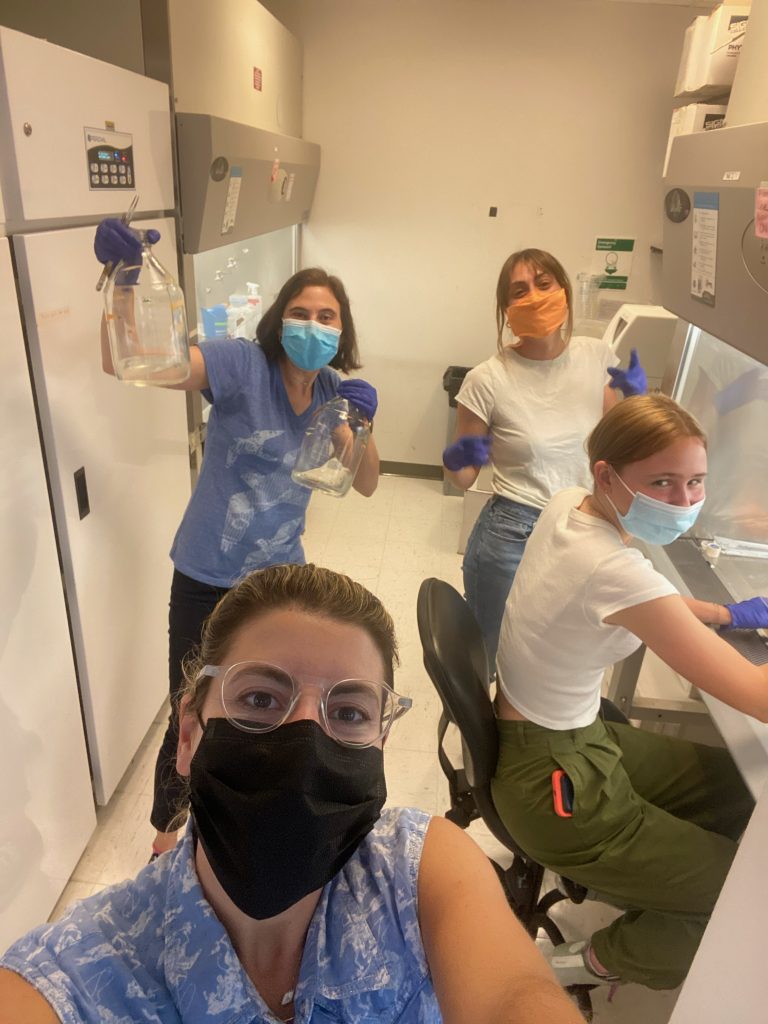
Outreach Activities
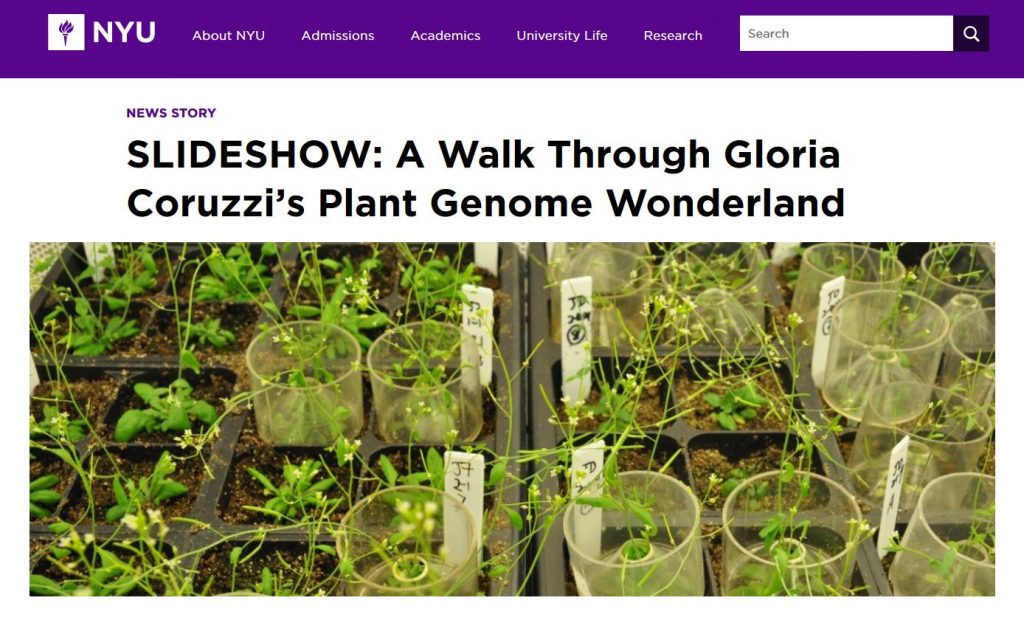
Gloria Coruzzi and Dennis Shasha featured on NSF Science Nation
Credit: National Science Foundation Science Nation Production https://www.nsf.gov/news/mmg/mmg_disp.jsp?med_id=185825&from=search_list
Hajra Jamal’s Senior Symposium for Gallatin.
Hajra explains her work in the lab and NSF project’s motivation.
Science In Real Life (IRL) Project Videos
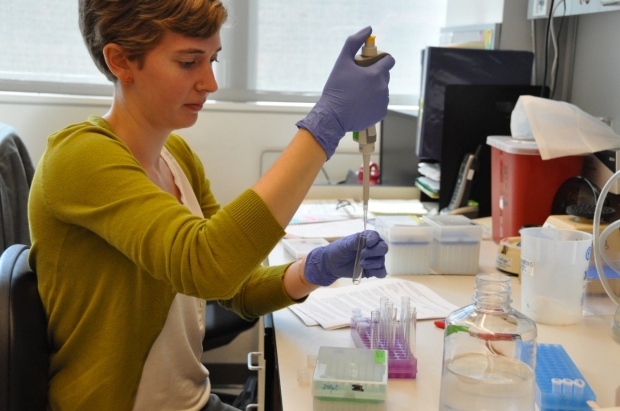
- Link: DNA Extraction (Science IRL Pilot)
- Link: DNA! (Science IRL S1 Ep1)
- Link: PCR & Molecular Systematics! (Science IRL S1 Ep 2.2)
- Link: Science IRL – All Videos
Joseph Swift (Former PhD student, Coruzzi Lab)
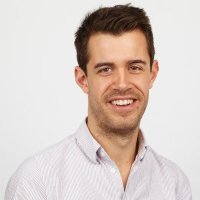
Link: Joseph Swift in Science
Swift (7th February 2015). Accessible Primer Shines Light on Rare Metals. The Australian: p10.
Swift (November 2014). The Point of it All, Science, 246(6211): 882. (Click to read)
Swift (March 2016). Genomics: The Social Gene, Science, 25. (Click to read)
High School Student Intel and Sieman’s Prize Winners
High School Student: Angela (Huihui) Fan (Stuyvesant HS)
Mentors: Drs. Gloria. Coruzzi, Ulises Rosas & Angelica Cibrian-Jaramillo
Project Title: Root Nutrient Foraging: A Morphometric Approach to Quantifying the Development Plasticity Space of Arabidopsis Ecotype in Laboratory and Natural Environments
Intel and ISEF Finalist & Siemans Semi-finalist (2011-2012)
Link: Angela Fan attends Nobel Ceremony
Link: Angela fan interview for ISEF
Link: Angela Fan meets Obama for INTEL
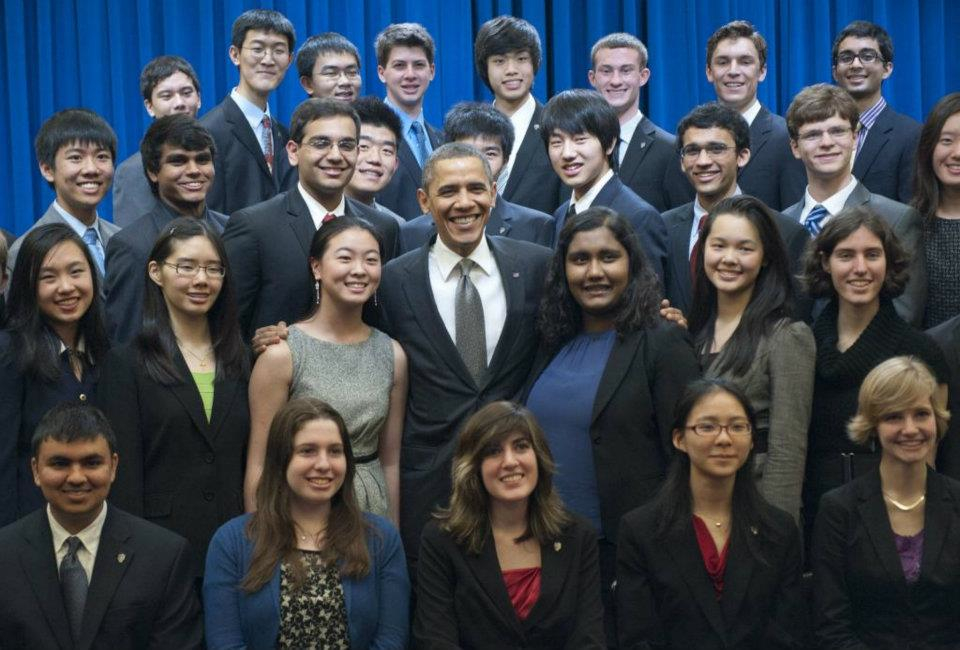
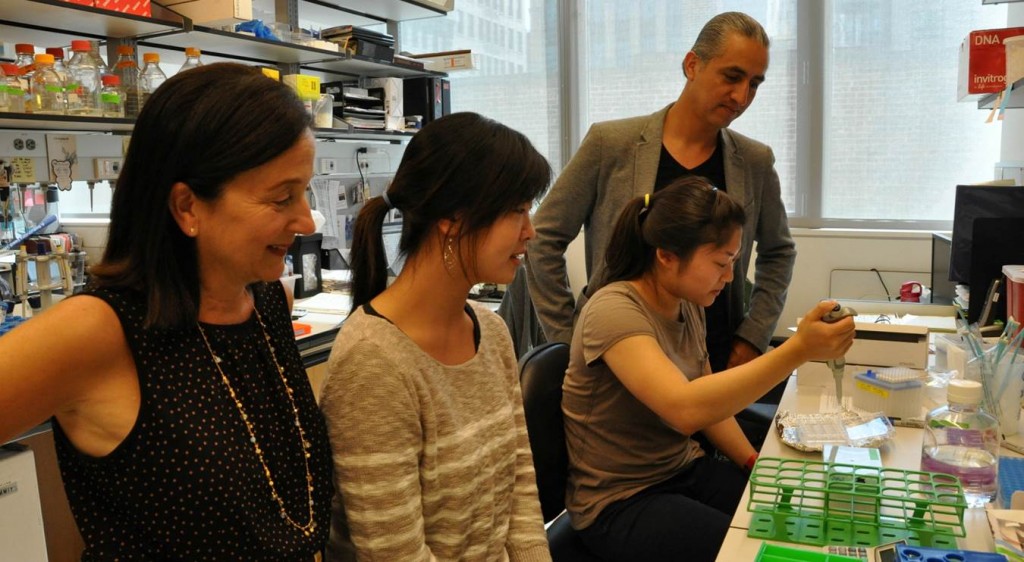
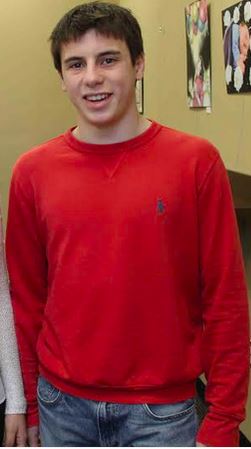
High School Student: Sam Goldman (Paul D. Schreiber HS)
Mentors: Gloria Coruzzi & Manpreet Katari
Project Title: “A network-based identification of virus resistance genes in plants.”
Siemens Semi-Finalist, 2014
Link: Schreiber Seniors Named Siemens Semifinalists
LISEF Long Island Science and Engineering Fair Finalist 2014
Sam Goldman interview for Scholar Athlete Award: Link: News 12 Long Island Scholar Athlete
Workshops: Dr. Manpreet Katari
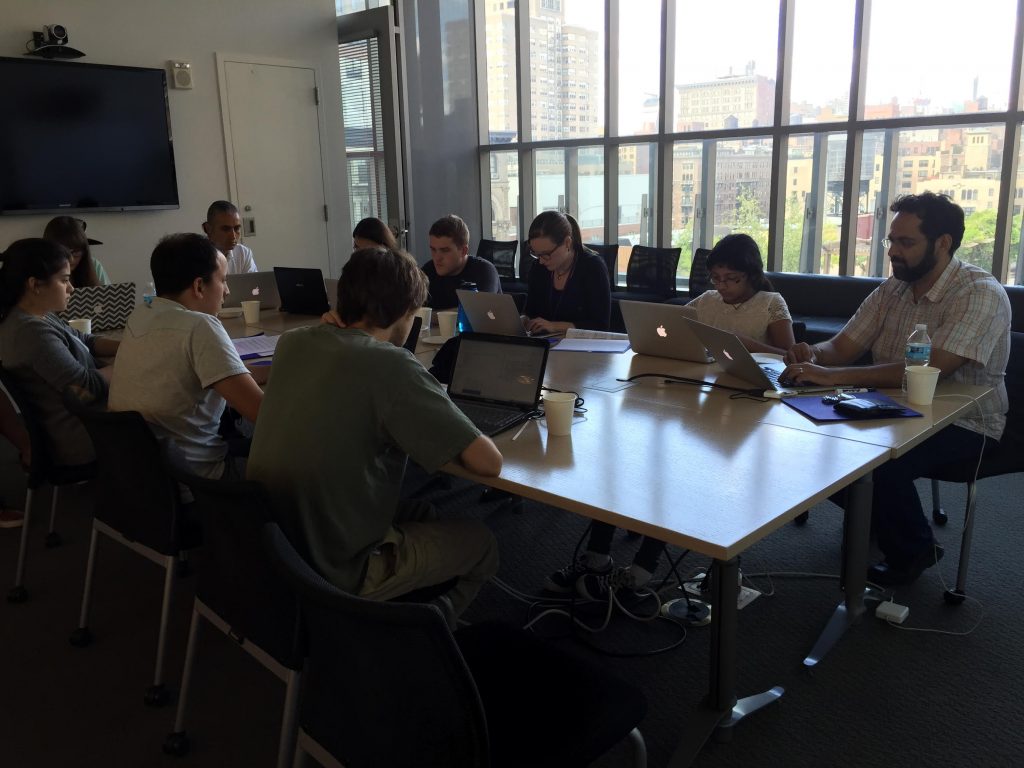
- R Workshop – Dr. Katari runs the R Workshop every Summer. The R Course is open to Postdoctoral Fellows, Graduate students, and Undergraduate students at NYU’s Center for Genomics & Systems Biology. The syllabus includes training modules on R Data Structures, Importing and Exporting Data in R, Using the Apply Function, Basic Plot Functionality, and Advanced Plots.
- NYU HiTS Bioinformatics Workshop – Dr. Katari runs the Bioinformatics Workshop every Winter. The NYU HiTS Bioinformatics Course is open to all Postdoctoral Fellows, Graduate students, and Undergraduate Students at NYU’s Center for Genomics & Systems Biology. The goal of this workshop is to familiarize students with the Unix environment and some of the common software programs that can be useful for analysis, including RNA-seq, Genotype By Sequencing, CHIP-seq, and Genome Assembly.
